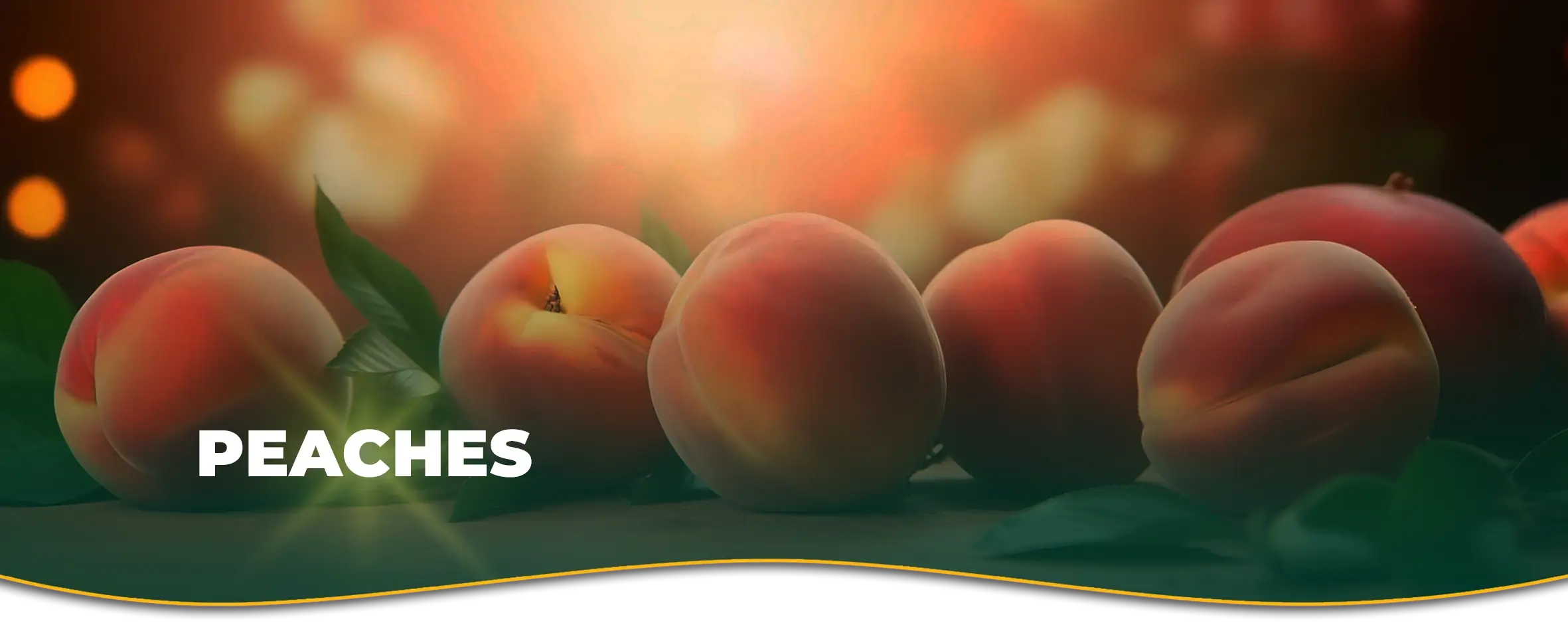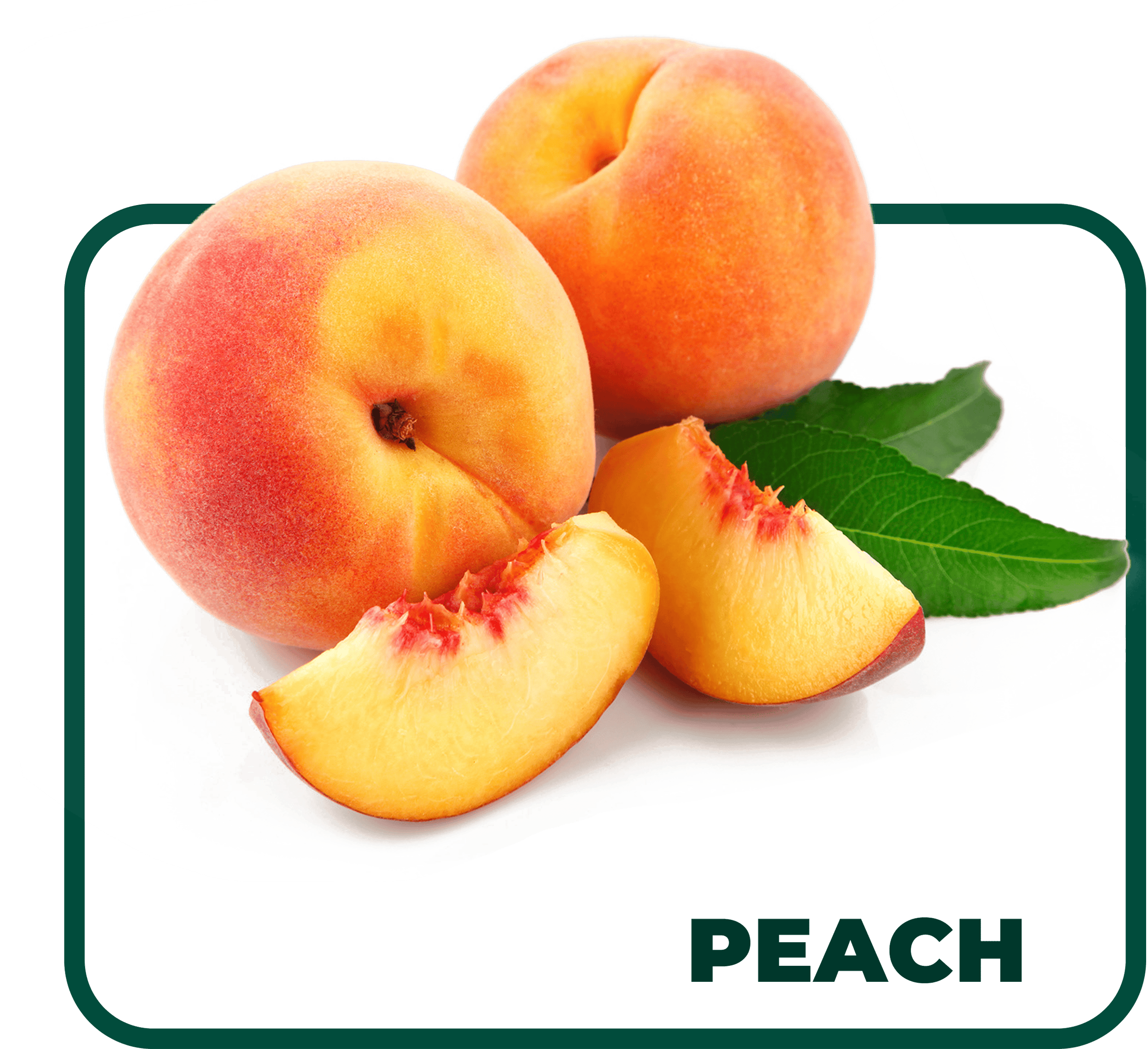
Peaches
Egyptian peaches are cherished for their sweet, juicy flesh and fragrant aroma. They come in a range of colors, including yellow, white, and red, with velvety skin that covers a tender, flavorful interior. The fruit is round to slightly oval and is known for its delightful balance of sweetness and acidity, making it a popular choice for eating fresh, baking, and making preserves.

Peaches are rich in vitamins A and C, which are essential for maintaining healthy skin and boosting the immune system. They also support digestion and help maintain a healthy weight. Moreover, peaches are rich in antioxidants like polyphenols and carotenoids, which help defend the body against oxidative stress and inflammation.
Eating Egyptian peaches can enhance hydration, support digestive health, and contribute to overall well-being. The high water content in peaches helps keep you hydrated, while the dietary fiber promotes healthy digestion and can aid in weight management. The antioxidants and vitamins in peaches help combat inflammation, support skin health, and boost the immune system.
Peach trees are typically planted in late winter or early spring when the risk of frost has passed. They thrive in well-drained soil with plenty of sunlight and require a moderate climate for optimal growth. Peaches thrive in the summer and are usually ripe by the end of summer to early autumn, from July to September. Harvesting involves picking the peaches when they are fully ripe but still firm, to ensure the best flavor and texture.
